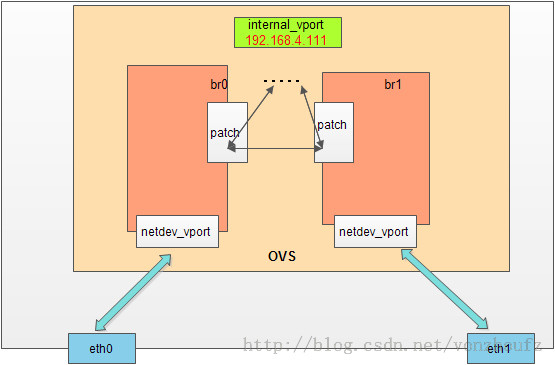- ovs实现lb负载均衡
阿狸的家
OVS云计算负载均衡运维云计算ovs
负载均衡定义负载均衡器的实现原理是通过硬件或软件设备将客户端访问流量根据转发策略分发到多个服务器或设备上,以确保系统的负载均衡。常见的实现方式包括:二层负载均衡:使用虚拟MAC地址方式,根据OSI模型的二层进行负载均衡。四层负载均衡:基于IP+端口的负载均衡,主要分析IP层及TCP/UDP层,实现四层负载均衡。七层负载均衡:从应用层开始,根据虚拟的URL或IP、主机名接收请求,再转向相应
- 七大设计原则之里氏替换原则
拙野
设计模式里氏替换原则java
目录一、什么是里氏替换原则?二、里氏替换原则的应用三、不符合里氏替换原则的情况一、什么是里氏替换原则?里氏替换原则,英文叫LiskovSubstitutionPrinciple,简称LSP(老色皮,哈哈)。里氏替换原则,其实是没有我们前面,说的SRP和OCP比较见名知意一些。根据他们两个的中文名称,我们都很容易联想到他的定义。比如,单一职责原则,就是一个类或者模块只负责一个职责。而开闭原则,根据名
- 汇编语言:基于x86处理器考前笔记 | 第三章 汇编语言基础
正小安
课程所学笔记
3.1基本语言元素程序框架程序从mainPROC开始,到mainENDP结束,最后以ENDmain标识程序入口与地址。如mainPROC,调用函数(子程序)ExitProcess,moveax,5,addeax,6,INVOKEExitProcess,0,mainENDP。声明变量使用.data伪指令声明变量,如.datasumDWORD0声明了32位变量sum,并可在程序中对其赋值,如movsu
- Android面试题
学海无涯乐作舟
客户端面试android
简单android基础对于面向对象的六大基本原则了解多少单一职责(SingleResponsibilityPrinciple):一个类只做一件事,可读性提高里式替换原则(LiskovSubstitutionPrinciple):依赖继承和多态,就是能用父类的地方就可以用子类替换,用子类的但不能用父类。依赖倒置原则(DependenceInversionPrinciple):依赖抽象,就是模块之间的
- 适合重要数据网站使用的OV SSL证书如何申请
ssl
申请OVSSL证书是提升网站安全性与用户信任度的关键步骤,虽然过程相对复杂,但其带来的安全增强效果对于企业级网站至关重要。以下是简化后的详细指南,帮助您顺利完成OVSSL证书的申请。准备阶段选择可靠的证书颁发机构(CA)首先,挑选一个拥有良好信誉和广泛认可的证书颁发机构,例如JoySSL等平台,确保所选CA能够提供高效、可靠的服务和支持。准备必要的文件准备好公司营业执照、组织机构代码证等相关的企业
- 别让网站 “裸奔”:SSL 证书的重要性
ssl证书
随着网络攻击和数据泄露事件的频发,确保网站和在线服务的安全性变得尤为关键。SSL证书作为保障数据传输安全的核心工具,其重要性不言而喻。SSL证书的申请流程确定选择证书类型:根据自身需求选择适合的SSL证书类型。SSL证书主要分为以下三种:域名验证证书(DVSSL):申请流程简单,仅需验证域名所有权,适合个人网站或小型企业网站。组织验证证书(OVSSL):需要验证组织的身份信息,提供更高的信任度,适
- 深透析面向对象的编码设计规则
全栈神
java前端javascript
一、面向对象的五大设计原则:SOLID原则SOLID是面向对象设计中的五个基础原则的缩写,分别是:单一职责原则(SingleResponsibilityPrinciple,SRP)开放封闭原则(Open/ClosedPrinciple,OCP)里氏替换原则(LiskovSubstitutionPrinciple,LSP)接口隔离原则(InterfaceSegregationPrinciple,IS
- 一些项目架构设计
想要追着光
面试复习1024程序员节java
本文章目录面向对象程序设计的主要原则1、单一职责原则(Single-ResponsibilityPrinciple)2、里氏代换原则(LiskovSubstitutionPrinciple)3、依赖倒置原则(DependenceInversionPrinciple)4、接口隔离原则(InterfaceSegregationPrinciple)5、迪米特原则(LawofDemeter)数据库设计原则
- Matlab初等数学与线性代数
崔渭阳
matlabmatlab线性代数数据结构
初等数学算术运算基本算术加法+添加数字,追加字符串sum数组元素总和cumsum累积和movsum移动总和A=1:5;B=cumsum(A)B=1×51361015减法-减法diff差分和近似导数乘法.*乘法*矩阵乘法prod数组元素的乘积cumprod累积乘积pagemtimes按页矩阵乘法(自R2020b起)tensorprodTensorproductsbetweentwotensors(自
- OVS主线流程之ovs-vswitchd主体结构分析
大空新一
网络OVS
OVS是openvirtualswitch的简称,是现在广泛使用的软件实现的虚拟网络交换机。各大云厂商普遍使用OVS来实现自身的虚拟网络,各厂商会根据自身需要加以修改使之符合自身需求,DPU中也使用OVS来实现流表的offload。OVS中的流表基于多级结构,与用户强相关的是opwnflow,下发的流表称为emcflow。OVS一般存在两种运行模式,内核模式和DPDK模式。内核模式下存在一个dat
- 深入理解Open vSwitch(OVS):原理、架构与操作
CloudJourney
云计算架构
一、引言随着云计算和虚拟化技术的不断发展,网络虚拟化成为了构建灵活、可扩展网络架构的关键技术之一。OpenvSwitch(OVS)作为一种功能强大的开源虚拟交换机,被广泛应用于云计算和虚拟化环境中,为虚拟机提供高效、灵活的网络连接。本文将从技术细节入手,详细阐述OVS的原理、架构以及常见操作,旨在帮助读者更深入地了解和应用OVS。二、OVS的原理OVS的原理主要基于软件定义网络(SDN)的思想,通
- Docker容器如何与主机同网段其它主机互通?
lingshengxiyou
linuxDPDKc++docker容器linux服务器后台开发
一、前言1、使用场景对开发者而言,随着容器的普遍使用,开发者可以很方便的搭建项目的简易测试环境。有时候为了项目可以在任意机器一键运行,不用配置连接IP等信息。所以希望可以提前固定容器的IP地址,而且一个项目有时候涉及多个容器,可能还会部署在多台机器上。所以如果容器间可以固定IP跨机器通信的话,会有很大方便。(免费订阅,永久学习)学习地址:Dpdk/网络协议栈/vpp/OvS/DDos/NFV/虚拟
- 汇编之mov、movsx、movzx
TIF星空
汇编经验分享
文章目录详细说明`mov``movsx``movzx`共同点总结指令名称描述作用x86表现x64表现示例mov将数据从一个位置复制到另一个位置直接数据传输传输数据,不改变数据内容传输数据,不改变数据内容moveax,ebxmovsx将源操作数符号扩展到目标操作数有符号扩展数据将较小数据类型符号扩展到较大数据类型将较小数据类型符号扩展到较大数据类型movsxeax,byteptr[ebx]movzx
- 中小型企业通过OV SSL证书提升信任与安全
LS_云诏
ssl安全网络协议https
对于中小型企业(SMEs)而言,在日益竞争激烈的市场环境中脱颖而出至关重要。随着数字化转型的加速推进,许多中小型企业开始意识到加强网站安全的重要性。OV(OrganizationValidation)SSL证书作为一种高级别的加密解决方案,不仅能够保护网站免受恶意攻击,还能显著提高用户对网站的信任度。本文将探讨中小型企业如何通过采用OVSSL证书来实现这一目标。一、OVSSL证书简介OVSSL证书
- 设计模式六大原则 —— 迪米特法则
天蓝蓝23528
设计模式迪米特法则
设计模式六大原则——迪米特法则在软件设计领域,设计模式六大原则是一组被广泛接受和应用的指导原则,旨在帮助开发者构建更加稳定、灵活、可维护和可扩展的软件系统。这六大原则分别是:单一职责原则(SingleResponsibilityPrinciple,SRP)、开闭原则(Open-ClosedPrinciple,OCP)、里氏替换原则(LiskovSubstitutionPrinciple,LSP)、
- Visual Studio vs VSCode:深入剖析两款开发工具的优劣与应用场景
天蓝蓝23528
visualstudiovscode产品运营
VisualStudiovsVSCode:深入剖析两款开发工具的优劣与应用场景在软件开发领域,选择一款合适的开发工具是提升开发效率、保障项目质量的关键。微软旗下的VisualStudio(VS)和VisualStudioCode(VSCode)作为两款备受推崇的开发工具,各自拥有独特的优势和应用场景。本文将从多个维度深入剖析VS与VSCode的优劣,并探讨它们在不同场景下的适用性,以期为开发者提供
- 人间值得#TOP225-30位古典音乐家柴可夫斯基
奇怪的小西
打卡30天认识30位古典音乐家彼得·伊里奇·柴可夫斯基(PeterIlyichTchaikovsky,1840年5月7日—1893年11月6日),出生于伏特金斯克市,俄罗斯浪彼得漫乐派作曲家。1864年,从圣彼得堡音乐学院毕业。1867年,《第一交响曲》在莫斯科首次演出。1870年,幻想序曲《罗密欧与朱丽叶》在莫斯科初次演出。1876年,与梅克夫人开始通信。1877年,芭蕾舞剧《天鹅湖》首演。18
- 2022-10-02
朗月斋主
肿瘤溶解病毒(OVs)作为一种新型的免疫治疗和治疗辅助剂,在制药行业中越来越受到关注,因为它们能够通过多种机制诱导和提高抗肿瘤免疫力。首先,OVs能够利用宿主免疫系统的内在机制(例如,逃避免疫检测)可以使肿瘤的免疫逃逸机制失效。第二,许多类型的OVs已被证明可以直接裂解肿瘤细胞,从而诱导出由肿瘤相关抗原和危险信号分子释放介导的肿瘤特异性T细胞反应。第三,表达免疫刺激治疗基因的武装OV可以在肿瘤组织
- OV SSL证书是什么?有什么用?
JoySSL230907
https网络协议httpssl网络
OVSSL证书,即组织验证(OrganizationValidation)SSL证书,是一种提供中级安全保障的SSL证书。它不仅验证了域名所有权,还对申请证书的组织进行了实际的验证和确认。OVSSL证书适用于商业网站,尤其是那些需要用户信任其公司身份的网站。对比DVSSL证书,OV证书提供了更高级别的验证,增加了用户对网站可靠性和安全性的信心。一:OVSSL证书的核心特点组织验证:认证机构(CA)
- 2020-03-14
尺子CZ
-创作你的创作官方image是一个优质的创作社区,在这里,你可以任性地创作,一篇短文、一张照片、一首诗、一幅画……我们相信,每个人都是生活中的艺术家,有着无穷的创造力。[image社区](http://www.baidu.com/link?url=R5yh3i2_CcxQf9gd4gQ4XaTp-F_FzQmc2eWibbXWovsDV0mtHVmHiqhdRdJX9rlX)-百度快照-99条评价
- PointCleanNet: 一种基于数据驱动的点云去噪方法
程序猿老甘
图形学算法DeepLearning深度学习点云处理
最近投文章,不止一个审稿人向我推荐了PointCleanNet用于稠密点云去噪。查了一下,是Ovsjanikov教授挂名的文章,发表在CGF上。高手背书,果断决定研究一下。1.介绍点云去噪是一个老问题了,一般主要是针对高斯噪声和异常点(Outliers)进行去噪,经典的方法包括双线性,高斯核以及MLS曲面重映射等方法。作者在PointCleanNet中,提出了一些关于点云去噪的一些细节问题,如下:
- OpenVswitch端口流量镜像
圣地亚哥_SVIP
ovs中无法直接抓包分析,可以通过端口流量镜像的方式进行抓包端口流量镜像主要分为两步:创建mirror,指定mirror中的源端口,目的端口绑定mirror至bridge创建mirror指定mirror名称,name={name}指定流量:select-all:true,表示此bridge上的所有流量;select-dst-port:镜像从此port离开的流量;select-src-port:镜像
- Week 2
悟空金月饺子
P.Charalambous,SergeiDubovskyandM.M.Ivanov,“HiddenSymmetryofVanishingLove’’这篇文章的题目里“hiddensymmetry”比较吸引我,abstract的第一句就是:“WeshowthatperturbationsofmasslessfieldsintheKerrblackholebackgroundenjoyahidden
- C++进阶——C++11(part 1)
淑女在哭泣
c++开发语言
一、列表初始化(initializer_list)1、initializer_list的结构所以像{10,20,30}这种用大括号括起来的列表就是初始化列表。在C++11中,支持了用列表初始化来构造容器,因此我们都可以用“{}”来进行初始化容器。vectorv={1,2,3,4,5,6};二、变量类型推导:autoVSdecltype1、autoauto只能根据变量初始化表达式类型推导变量类型,换
- Mininet互通(mininet内主机跨宿主机通信、mininet与真机通信、mininet内主机访问外网)怎么实现?
coderge
图中的ens33、ens37均是网卡,此处的互通指的是ubuntu_1、ubuntu_2、mininet_1内的主机、mininet_2内的主机全部都可以互相通信。借助的原理就是mininet内的出口OVS(OpenvSwitch)占用宿主机ubuntu主机网卡,从而达到mininet内虚拟主机与ubuntu宿主机在网络中同等地位的目的,占用网卡后的网络拓扑可以这么理解。1实验环境Ubuntu18
- csapp-chapter3--mov指令
味堡o_0
csapp汇编学习方法
数据传送mov汇编mov精要文章目录数据传送`mov``汇编mov精要`mov的后缀操作数指示符`movq`与`movabsq``MOVZ`和`MOVS`mov的后缀mov指令根据操作的数据size不同,具有不同的后缀指示movb(传送字节)movw(传送字)movl(传送双字)movq(传送四字)C声明Intel数据类型汇编代码后缀大小(byte)char字节b1short字w2int双字l4l
- 【日更挑战】2022-12-03比赛日NOTES
扁圆柱体
日更挑战当前排名:第595天,第707名,排名较昨日后退1名。比赛日,官网给出每场比赛的Notes(极个别场次没有),翻译如下Senators(3)-ovs.Rangers(2)Tkachuk成为2018届新秀中第2位打入100球的球员,另一位是飓风的AndreiSvechnikov(103球)。Svechnikov是2号秀,Tkachuk是4号秀;Smith说Hamonic(咽喉)和Zub(面部
- 面向对象的五大基本原则
PG Thinker
设计模式javagithub开发语言设计模式
在20世纪90年代末到21世纪初罗伯特·C·马丁将面向对象编程和设计中广为接受和应用的一组准则总结为SOLID,其分别表示:单一职责原则(SingleResponsibilityPrinciple,SRP)开闭原则(Open-ClosedPrinciple,OCP)里氏替换原则(LiskovSubstitutionPrinciple,LSP)接口隔离原则(InterfaceSegregation
- 什么是【里氏替换】
一俢
里氏替换(LiskovSubstitutionPrinciple,简称LSP),同样也是设计原则之一,里氏替换原则定义:任何基类可以出现的地方,子类一定可以出现。里氏替换原则是继承复用的基石,只有当衍生类可以替换掉基类,软件单位的功能不受影响时,基类才能真正被复用,而衍生类也能够在基类的基础上增加新的行为。子类可以实现父类的抽象方法,但是不能覆盖父类的非抽象方法;子类中可以增加自己特性;类的方法重
- Ubuntu 内核版本问题追踪
shadowlan
这两天在调试一个内核版本的问题,准确来说是为了解决给kubernetes的CNI启用IPSec+Geneve模式遇到的一个坑。一开始我在本地实验IPSec+Geneve模式时很顺利,但是放到e2e测试环境时,基本的ping连接测试也会失败,因为CNI本身只用到了内核的OVS,于是怀疑是内核的版本不一致导致,通过uname-a查看了两个环境后发现的确有小版本的差异,可工作的版本是Linux4.15.
- Algorithm
香水浓
javaAlgorithm
冒泡排序
public static void sort(Integer[] param) {
for (int i = param.length - 1; i > 0; i--) {
for (int j = 0; j < i; j++) {
int current = param[j];
int next = param[j + 1];
- mongoDB 复杂查询表达式
开窍的石头
mongodb
1:count
Pg: db.user.find().count();
统计多少条数据
2:不等于$ne
Pg: db.user.find({_id:{$ne:3}},{name:1,sex:1,_id:0});
查询id不等于3的数据。
3:大于$gt $gte(大于等于)
&n
- Jboss Java heap space异常解决方法, jboss OutOfMemoryError : PermGen space
0624chenhong
jvmjboss
转自
http://blog.csdn.net/zou274/article/details/5552630
解决办法:
window->preferences->java->installed jres->edit jre
把default vm arguments 的参数设为-Xms64m -Xmx512m
----------------
- 文件上传 下载 解析 相对路径
不懂事的小屁孩
文件上传
有点坑吧,弄这么一个简单的东西弄了一天多,身边还有大神指导着,网上各种百度着。
下面总结一下遇到的问题:
文件上传,在页面上传的时候,不要想着去操作绝对路径,浏览器会对客户端的信息进行保护,避免用户信息收到攻击。
在上传图片,或者文件时,使用form表单来操作。
前台通过form表单传输一个流到后台,而不是ajax传递参数到后台,代码如下:
<form action=&
- 怎么实现qq空间批量点赞
换个号韩国红果果
qq
纯粹为了好玩!!
逻辑很简单
1 打开浏览器console;输入以下代码。
先上添加赞的代码
var tools={};
//添加所有赞
function init(){
document.body.scrollTop=10000;
setTimeout(function(){document.body.scrollTop=0;},2000);//加
- 判断是否为中文
灵静志远
中文
方法一:
public class Zhidao {
public static void main(String args[]) {
String s = "sdf灭礌 kjl d{';\fdsjlk是";
int n=0;
for(int i=0; i<s.length(); i++) {
n = (int)s.charAt(i);
if((
- 一个电话面试后总结
a-john
面试
今天,接了一个电话面试,对于还是初学者的我来说,紧张了半天。
面试的问题分了层次,对于一类问题,由简到难。自己觉得回答不好的地方作了一下总结:
在谈到集合类的时候,举几个常用的集合类,想都没想,直接说了list,map。
然后对list和map分别举几个类型:
list方面:ArrayList,LinkedList。在谈到他们的区别时,愣住了
- MSSQL中Escape转义的使用
aijuans
MSSQL
IF OBJECT_ID('tempdb..#ABC') is not null
drop table tempdb..#ABC
create table #ABC
(
PATHNAME NVARCHAR(50)
)
insert into #ABC
SELECT N'/ABCDEFGHI'
UNION ALL SELECT N'/ABCDGAFGASASSDFA'
UNION ALL
- 一个简单的存储过程
asialee
mysql存储过程构造数据批量插入
今天要批量的生成一批测试数据,其中中间有部分数据是变化的,本来想写个程序来生成的,后来想到存储过程就可以搞定,所以随手写了一个,记录在此:
DELIMITER $$
DROP PROCEDURE IF EXISTS inse
- annot convert from HomeFragment_1 to Fragment
百合不是茶
android导包错误
创建了几个类继承Fragment, 需要将创建的类存储在ArrayList<Fragment>中; 出现不能将new 出来的对象放到队列中,原因很简单;
创建类时引入包是:import android.app.Fragment;
创建队列和对象时使用的包是:import android.support.v4.ap
- Weblogic10两种修改端口的方法
bijian1013
weblogic端口号配置管理config.xml
一.进入控制台进行修改 1.进入控制台: http://127.0.0.1:7001/console 2.展开左边树菜单 域结构->环境->服务器-->点击AdminServer(管理) &
- mysql 操作指令
征客丶
mysql
一、连接mysql
进入 mysql 的安装目录;
$ bin/mysql -p [host IP 如果是登录本地的mysql 可以不写 -p 直接 -u] -u [userName] -p
输入密码,回车,接连;
二、权限操作[如果你很了解mysql数据库后,你可以直接去修改系统表,然后用 mysql> flush privileges; 指令让权限生效]
1、赋权
mys
- 【Hive一】Hive入门
bit1129
hive
Hive安装与配置
Hive的运行需要依赖于Hadoop,因此需要首先安装Hadoop2.5.2,并且Hive的启动前需要首先启动Hadoop。
Hive安装和配置的步骤
1. 从如下地址下载Hive0.14.0
http://mirror.bit.edu.cn/apache/hive/
2.解压hive,在系统变
- ajax 三种提交请求的方法
BlueSkator
Ajaxjqery
1、ajax 提交请求
$.ajax({
type:"post",
url : "${ctx}/front/Hotel/getAllHotelByAjax.do",
dataType : "json",
success : function(result) {
try {
for(v
- mongodb开发环境下的搭建入门
braveCS
运维
linux下安装mongodb
1)官网下载mongodb-linux-x86_64-rhel62-3.0.4.gz
2)linux 解压
gzip -d mongodb-linux-x86_64-rhel62-3.0.4.gz;
mv mongodb-linux-x86_64-rhel62-3.0.4 mongodb-linux-x86_64-rhel62-
- 编程之美-最短摘要的生成
bylijinnan
java数据结构算法编程之美
import java.util.HashMap;
import java.util.Map;
import java.util.Map.Entry;
public class ShortestAbstract {
/**
* 编程之美 最短摘要的生成
* 扫描过程始终保持一个[pBegin,pEnd]的range,初始化确保[pBegin,pEnd]的ran
- json数据解析及typeof
chengxuyuancsdn
jstypeofjson解析
// json格式
var people='{"authors": [{"firstName": "AAA","lastName": "BBB"},'
+' {"firstName": "CCC&
- 流程系统设计的层次和目标
comsci
设计模式数据结构sql框架脚本
流程系统设计的层次和目标
- RMAN List和report 命令
daizj
oraclelistreportrman
LIST 命令
使用RMAN LIST 命令显示有关资料档案库中记录的备份集、代理副本和映像副本的
信息。使用此命令可列出:
• RMAN 资料档案库中状态不是AVAILABLE 的备份和副本
• 可用的且可以用于还原操作的数据文件备份和副本
• 备份集和副本,其中包含指定数据文件列表或指定表空间的备份
• 包含指定名称或范围的所有归档日志备份的备份集和副本
• 由标记、完成时间、可
- 二叉树:红黑树
dieslrae
二叉树
红黑树是一种自平衡的二叉树,它的查找,插入,删除操作时间复杂度皆为O(logN),不会出现普通二叉搜索树在最差情况时时间复杂度会变为O(N)的问题.
红黑树必须遵循红黑规则,规则如下
1、每个节点不是红就是黑。 2、根总是黑的 &
- C语言homework3,7个小题目的代码
dcj3sjt126com
c
1、打印100以内的所有奇数。
# include <stdio.h>
int main(void)
{
int i;
for (i=1; i<=100; i++)
{
if (i%2 != 0)
printf("%d ", i);
}
return 0;
}
2、从键盘上输入10个整数,
- 自定义按钮, 图片在上, 文字在下, 居中显示
dcj3sjt126com
自定义
#import <UIKit/UIKit.h>
@interface MyButton : UIButton
-(void)setFrame:(CGRect)frame ImageName:(NSString*)imageName Target:(id)target Action:(SEL)action Title:(NSString*)title Font:(CGFloa
- MySQL查询语句练习题,测试足够用了
flyvszhb
sqlmysql
http://blog.sina.com.cn/s/blog_767d65530101861c.html
1.创建student和score表
CREATE TABLE student (
id INT(10) NOT NULL UNIQUE PRIMARY KEY ,
name VARCHAR
- 转:MyBatis Generator 详解
happyqing
mybatis
MyBatis Generator 详解
http://blog.csdn.net/isea533/article/details/42102297
MyBatis Generator详解
http://git.oschina.net/free/Mybatis_Utils/blob/master/MybatisGeneator/MybatisGeneator.
- 让程序员少走弯路的14个忠告
jingjing0907
工作计划学习
无论是谁,在刚进入某个领域之时,有再大的雄心壮志也敌不过眼前的迷茫:不知道应该怎么做,不知道应该做什么。下面是一名软件开发人员所学到的经验,希望能对大家有所帮助
1.不要害怕在工作中学习。
只要有电脑,就可以通过电子阅读器阅读报纸和大多数书籍。如果你只是做好自己的本职工作以及分配的任务,那是学不到很多东西的。如果你盲目地要求更多的工作,也是不可能提升自己的。放
- nginx和NetScaler区别
流浪鱼
nginx
NetScaler是一个完整的包含操作系统和应用交付功能的产品,Nginx并不包含操作系统,在处理连接方面,需要依赖于操作系统,所以在并发连接数方面和防DoS攻击方面,Nginx不具备优势。
2.易用性方面差别也比较大。Nginx对管理员的水平要求比较高,参数比较多,不确定性给运营带来隐患。在NetScaler常见的配置如健康检查,HA等,在Nginx上的配置的实现相对复杂。
3.策略灵活度方
- 第11章 动画效果(下)
onestopweb
动画
index.html
<!DOCTYPE html PUBLIC "-//W3C//DTD XHTML 1.0 Transitional//EN" "http://www.w3.org/TR/xhtml1/DTD/xhtml1-transitional.dtd">
<html xmlns="http://www.w3.org/
- FAQ - SAP BW BO roadmap
blueoxygen
BOBW
http://www.sdn.sap.com/irj/boc/business-objects-for-sap-faq
Besides, I care that how to integrate tightly.
By the way, for BW consultants, please just focus on Query Designer which i
- 关于java堆内存溢出的几种情况
tomcat_oracle
javajvmjdkthread
【情况一】:
java.lang.OutOfMemoryError: Java heap space:这种是java堆内存不够,一个原因是真不够,另一个原因是程序中有死循环; 如果是java堆内存不够的话,可以通过调整JVM下面的配置来解决: <jvm-arg>-Xms3062m</jvm-arg> <jvm-arg>-Xmx
- Manifest.permission_group权限组
阿尔萨斯
Permission
结构
继承关系
public static final class Manifest.permission_group extends Object
java.lang.Object
android. Manifest.permission_group 常量
ACCOUNTS 直接通过统计管理器访问管理的统计
COST_MONEY可以用来让用户花钱但不需要通过与他们直接牵涉的权限
D
